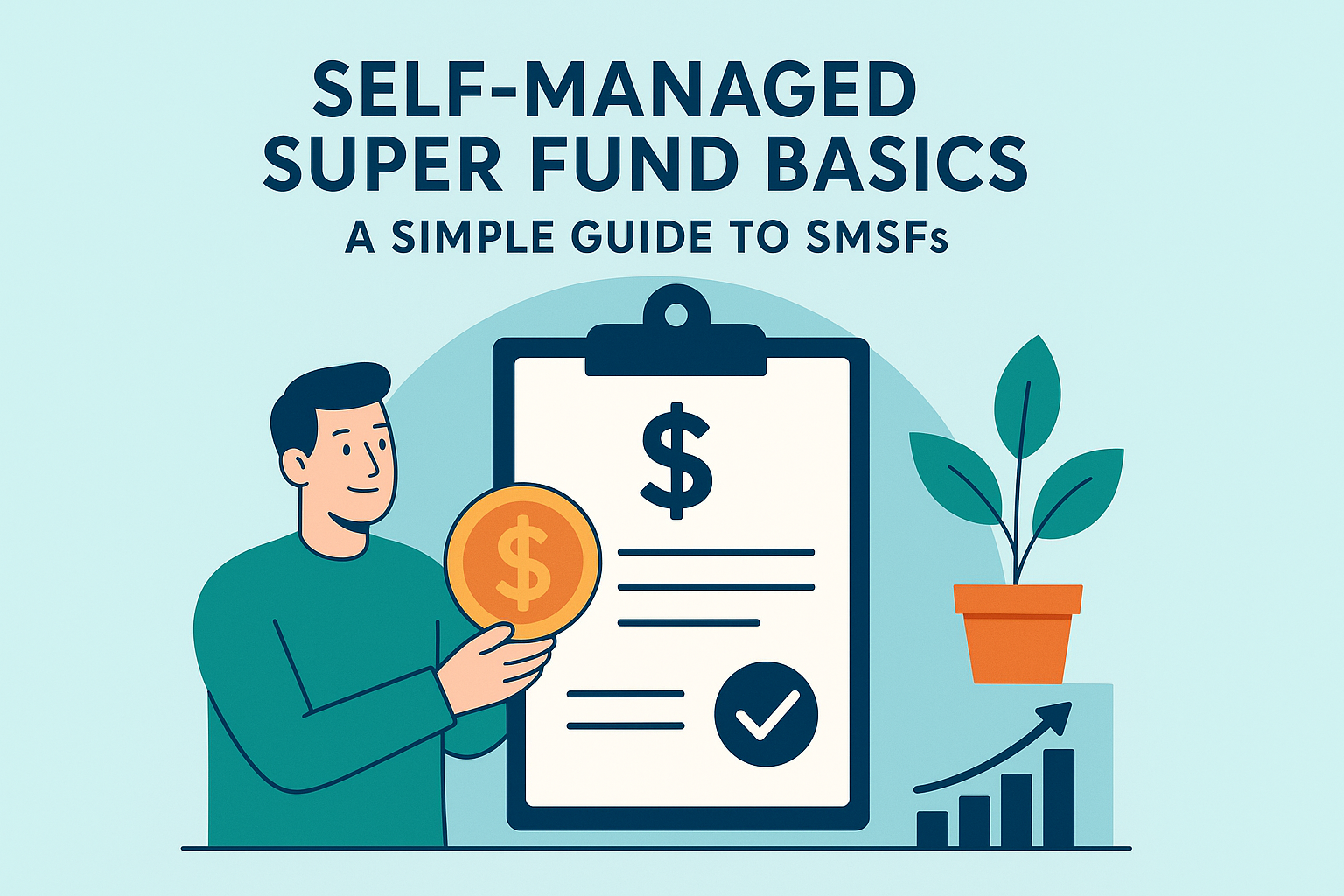Self-managed super funds (SMSF) are funds for individuals who manage themselves and have more control over their retirement savings. In (SMSF) you can decide where your money is going. So, in this blog, you’ll learn about what an SMSF is, how to set it up, why one should set it up, and how they get audited. It will also help distinguish between a self-managed super fund and a self-funded super fund.
What is an SMSF, and What Does it Stand for?
An SMSF is an independently run super fund 100% owned by one or more individuals. An SMSF is a departure from traditional superannuation funds, where an organization or fund manager makes decisions on your behalf. With an SMSF, you can be empowered to manage your wealth. You must follow the laws set by (ATO ) and keep the fund in line with such rules.
SMSF Setup
Establishing a self managed super fund may sound scary, but it is easy when discussed as follows. First and foremost, you have to set up the fund, and for that, you need to choose the trustees. These trustees are normally the members of the fund. An SMSF can only have a maximum of six members.
However, after selecting the trustees, the subsequent procedure is to lodge the fund with the ATO. You will also need to prepare a trust deed, which is basically akin to the constitution of a fund. Lastly, you have to get an account with the bank where all the contributions and investments will be made for the SMSF.
The proper setup of an SMSF will, therefore, enable a person to have additional control over the management of their retirement savings investment. This is in line with your strategic plan to invest in the shares market, property, or even collectibles.
Major Difference between Self-Funded Super Fund and SMSF
One of the greatest myths about self-managed super funds is that they are the same as self-funded super funds. Though they look alike, these two are not the same. A self-funding super fund can be defined as people looking forward to financial independence based on their savings but not through state support. However, a self-managed super fund is a superannuation fund where you control the retirement savings and investments.
Read also: Outsourced Bookkeeping Services: A Smart Choice for Small Business
SMSF Audit and Compliance
One of the key responsibilities of managing an SMSF is ensuring legal compliance. An annual SMSF audit is a crucial part of this, as it verifies that your fund adheres to the rules and that the financial statements are accurate.
Making a priority for the SMSF auditor Thus, the auditor will examine the fund’s financial documents and review the fund’s activity to ensure that everything is fine. There are stiff penalties in case the fund is not compliant. Work must be done to document all transactions properly and ensure that the investments conform to the ATO norms.
Benefits of an SMSF
Many huge individuals go for self-managed super funds due to the authority they provide. From there, I can make investment decisions about our other needs, wants, desires, duchess finances, or risk-taking abilities.
Like any other ‘super funds’, SMSFs are privileged to receive tax benefits on the amount contributed and the profits made. However, you would like to ensure that you do not lose any of the benefits stated by ATO by organizing the fund.
Is an SMSF Right for You?
Though there are certain advantages to managing your super fund, it may not suit everyone. Running a self-managed super fund costs time, effort, and a basic knowledge of the stock market. If you are still on the fence, ask a financial advisor if you should have an SMSF.
Conclusion
A self-managed super fund means having control of your retirement savings and flexibility. However, that is possible only if one ensures that one follows the aspects of the law as provided in the law. This article outlines the basic flow of setting up an SMSF and embarking on the SMSF audit process to ensure you get the most out of this process. If one is in a position to determine between a self-managed super fund and a self-funded super fund, then it all comes down to personal circumstances or retirement planning. If you are willing to take control of your superannuation, an SMSF may fit your needs.
If you dedicate time and effort, you could come to know whether it is the right choice for you to invest in your future.
Read also: Optimize Your Business with Accounts Receivable and Payable Services



Share this Article